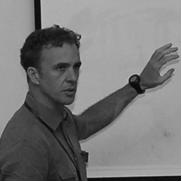José María Díaz-Nafría
| Given name | José María |
| Family name | Díaz-Nafría |
| Citation name | Díaz-Nafría, J.M. |
| Date of birth | 1970 |
| Knowledge Domains of expertise | 03, 05, 06, 10, 14, 53, 62, 65, Electromagnetism, Information Philosophy |
| Country of residence | es |
José María Díaz Nafría (Salamanca, 1970; PhD in Telecommunication Engineering from the Universidad Politécnica de Madrid; MS & BS in Philosophy from the Universidad Nacional de Educación a Distancia) is a Professor at the Universidad a Distancia de Madrid; Visiting Professor at the Polytechnic University of Munich (Germany) since 2011, and Researcher at the University of León (Spain) since 2010.
Previously, he has held various positions: as a researcher at the Vienna University of Technology (1996) and at the Universidad Politécnica de Madrid (1997-2003); as a lecturer at the Universidad Alfonso X el Sabio (1997-2009); as a researcher at the Universidad Estatal Península de Santa Elena, Ecuador (2014-2017). He has been a visiting and invited professor at numerous universities in Germany, Spain, Ecuador, Austria, Sweden and Greece. He was Head of the Telecommunication Engineering department from 2021 to 2024.
He is a member of the management team of the Institut für Design Science (Germany), of the International Society of Information Studies (Austria) of which he is currently co-President-elect, of the Institute for a Global Sustainable Information Society (Austria), of the International Center for Information Ethics (Germany), of the BITrum-Research Group (Spain) of which he is President, as well as in the editorial teams of several scientific journals. His research work focuses on interdisciplinary research methodologies (including plain language), the unification of the information concept, systems theory, the observation problem - general and applied to radiant systems-, and knowledge integration systems.
